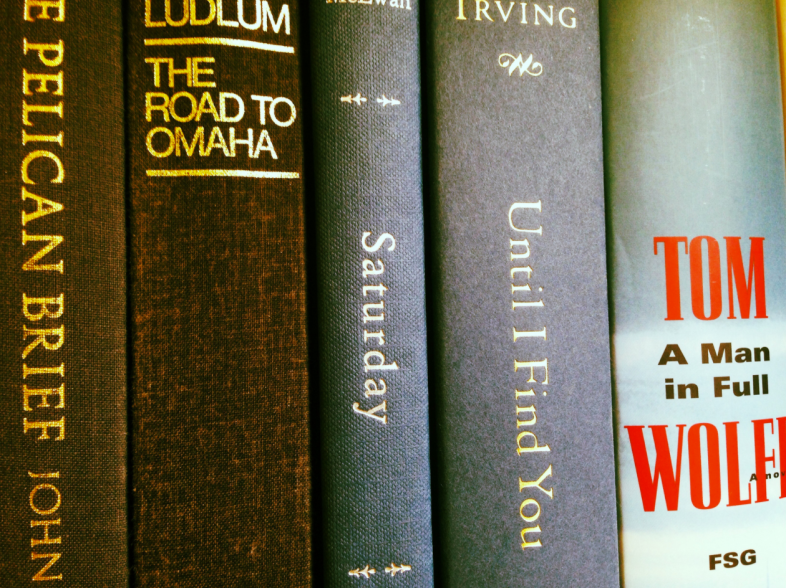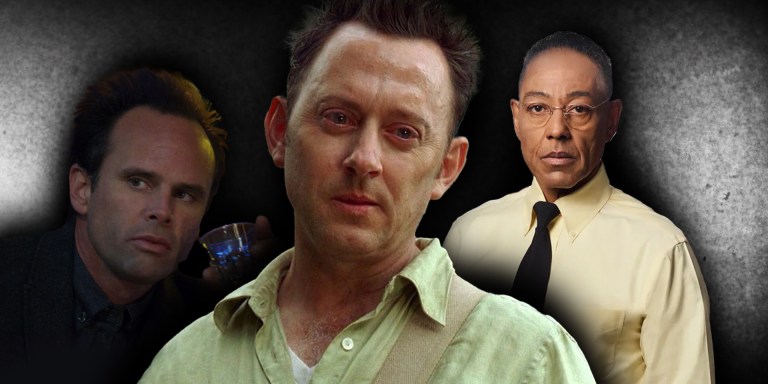
Over the last year, I’ve been lucky enough to interview some of the best writers on the planet for WritingRoutines.com. It was the opportunity of a lifetime to be able to ask Pulitzer Prize winners, #1 New York Times best-selling authors, brilliant novelists, talented journalists and expert communicators about how they practice their craft. I got valuable lessons from each one. I’ve collected a few of the best below, alongside some of the insights—or hacks as we call them today to get more people to click—from writers I wish were still alive to interview or ones I wish to interview someday if the opportunity presents itself.
I hope you learn as much from them as I did. Enjoy!
***
Devote Yourself to Someone Greater First
“If I am asked today to advise a young writer who has not yet made up his mind what way to go, I would try to persuade him to devote himself first to the work of someone greater, interpreting or translating him. If you are a beginner there is more security in such self-sacrifice than in your own creativity and nothing you ever do with all your heart is done in vain.”
— Stefan Zweig, author of The World of Yesterday and in the 1920’s and 1930’s was one of the most popular authors in the world
Wake Up Early And Read, Read, Read
“I wake up around 5am. I have 2-3 cups of coffee. I read and read and read for two hours. I read high quality literary fiction to be inspired, high quality non-fiction about a topic I am fascinated by in order to learn, I read inspirational or spiritual writing to feel that special something inside, and often I will spend some time studying a game. Then I might read the literary fiction some more. At some point, I get the urge or the itch to put the books away. I go to my computer and start to write.”
— James Altucher, author of Choose Yourself!, which the USA Today’s called one of “Best Business Books of All Time.”
Do Not Chase Exotic Locations to Write
“It was a time everyone was pressing wonderful houses on us. ‘I have a perfectly marvellous house for you to write in,’ they’d say. Of course no one needs marvellous houses to write in. I still knew that much. All you needed was one room. But somehow the next house always beckoned.”
— Budd Schulberg, author of What Makes Sammy Run? and the Academy Award-winning screenplay for On the Waterfront
Edit Ten Times
“I repeatedly edit it many times, at least ten. I just keep on doing it, until I can’t think of further improvements. I can’t say that is a process in any formal sense, simply a recognition that the “process” to date hasn’t worked very well and so it must continue. I don’t pretend this is efficient.”
— Tyler Cowen, economics professor, author of Average Is Over and contributor to the New York Times, Wall Street Journal, Newsweek and many other publications
Nobody Gets Talker’s Block
“No one ever gets talker’s block. No one wakes up in the morning, discovers he has nothing to say and sits quietly, for days or weeks, until the muse hits, until the moment is right, until all the craziness in his life has died down.”
— Seth Godin, New York Times bestselling author of Purple Cow and more than 20 other books
Do the Three Passes of Editing
“[My editing] rests on three passes. The first pass is when you write the best chapter you can. The second pass comes later once the whole book (or whole part of the book containing the chapter) is done. During this pass, I come back to the chapter on my computer and cut and tighten. The final pass is when I read through a printed version of the chapter on paper. Reading on paper is necessary if you’re going to root out odd constructions or minor errors.”
— Cal Newport, author of the Wall Street Journal bestseller Deep Work
The Only Way Out is Through
“The way out of this mess is through. A friend of mine who used to do long-distance running gave me some advice on dealing with pain as a writer. “What do you do about the cramps?” I asked. I was noticing they hit my in the gut usually at the three or four mile mark. I thought he’d have some great advice on how to avoid them altogether. In fact, I assumed this was the case. His answer surprised me, though. ‘Cramps? What do I do? I keep running, and eventually they go away. I run through the cramps.’ What do I do when I feel blocked? I write through the block.”
— Jeff Goins, author of the Wall Street Journal bestseller Real Artists Don’t Starve
Sometimes You Just Need Some Good Earmuffs
“I’m an “absolute quiet” kind of person. If I’m writing at home, and there’s any noise at all, such as my wonderful hubby puttering around and coincidentally clearing his throat, I wear my Peltor Sport Ultimate 10 Hearing Protector Earmuffs. I’m so used to them that when I need to concentrate, I put them on even when there isn’t any noise. Earmuffs are like a signal to my brain—Okay, focus! On planes, I often wear noise canceling headphones.”
— Dr. Barbara Oakley, bestselling author of A Mind for Numbers and former Army Captain
Be So Good They Can’t Ignore You
“What they want to hear is, ‘Here’s how you get an agent, here’s how you write a script’…but I always say, ‘Be so good they can’t ignore you.’”
— Steve Martin, author of Born Standing Up: A Comic’s Life and award-winning actor and banjo player
Keep the Best in Mind
“It really depends on the genre of work I’m doing–I always try to keep models in mind, though the model will change depending on what I’m working on. For the book on Cato the Younger, Jimmy Soni and I were constantly referring to Tom Holland’s book on the Roman Republic, Rubicon; for our book on Claude Shannon, to James Gleick’s The Information and Sylvia Nasar’s A Beautiful Mind. For my academic work, people like Danielle Allen are great models.”
— Rob Goodman, congressional speechwriter and co-author of A Mind at Play and Rome’s Last Citizen: The Life and Legacy of Cato, Mortal Enemy of Caesar
Quit Your Bitching
“Don’t lament so much about how your career is going to turn out. You don’t have a career. You have a life. Do the work. Keep the faith. Be true blue. You are a writer because you write. Keep writing and quit your bitching. Your book has a birthday. You don’t know what it is yet.”
― Cheryl Strayed, author of the number #1 New York Times bestseller Wild and Tiny Beautiful Things
Fix The Important Things
“Writer’s block is miserable and part of it can be just being in a really bad place. Sometimes if you’re just in a bad mental place, it doesn’t matter what work you put in. You have to fix bigger things than your writing.”
— Hari Kondabolu, the comic who the New York Times called “one of the most necessary political comedians working today.”
Get a Giant Sketchpad
“Notebooks have always been big for me, both in the early stages of a new project and as a way to get myself unstuck if I’m struggling. But I have giant, chicken-scratch handwriting, and would always end up jotting down thoughts over half a dozen pages and then never really looking at them again. I have probably fifty illegible notebooks sitting in desk drawers, and I would easily have filled fifty more had I not been introduced to the most elegant solution by a friend, the author Ashley Cardiff: A sketchpad. A 9-by-12-inch artist’s sketchpad. This has been my great revelation. It’s unlined so I can read my bad handwriting and large enough that I can group several ideas together on the same page. Plus, it gives me an excuse to buy fancy mechanical pencils.”
— Liana Maeby, author of South on Highland, which actor/writer BJ Novak called “the kind of book kids will steal from each other.”
It’s All Material
“I’m never not working on material. Every second of my existence, I am thinking, ‘Can I do something with that?’” [By the way, this advice echoes a phrase I’ve learned from author Robert Greene, “It’s all material.” Meaning everything bad that happens, everything frustrating or delayed or disappointing—all of it can be fuel for a book. It can teach you something that helps you improve your business, it can become a story you pass along to a friend.]
— Jerry Seinfeld, creator of Seinfeld and named by Comedy Central the “12th Greatest Stand-up Comedian of All Time.”
Understand How the Pieces Fit Together
“To write a clean and fluent piece of any kind, you have to understand how its various parts fit together—how a change here will affect something over there. With a short piece, you never lose sight of the whole because you can read and reread it many times as you work. That’s what I do. I make a change and then I read the whole piece to see how it works. But I can’t do that with a book, so I have to find other ways to stay oriented. I reread or skim sections of the book that I know relate to the part I’m working on, I keep notes about the larger structure, and I use Word’s phrase-search function to move around and check up on things. I also make a huge effort to commit as much of the book as I can to memory. It’s exhausting and it seems psychologically damaging in some way, but it helps me to understand when jokes need to be repeated, how much space needs to intervene between similar kinds of scenes, how ideas should be patterned, etc.”
— Aaron Thier, author of Mr. Eternity and recipient of a literature fellowship from the National Endowment for the Arts
Run to Keep Yourself Sane
“The twin activities of running and writing keep the writer reasonably sane and with the hope, however illusory and temporary, of control.” [This is not unlike many other writers—including Murakami and Malcolm Gladwell—who use running as a coping mechanism.]
— Joyce Carol Oates, author of over 40 novels, including Them, winner of the National Book Award
Before You Write, Crystallize Your Thinking
“If I’m just starting, I never consider the page blank. I’ve been writing in my head long before I sit down at the keyboard. In fact, I sometimes start inadvertently, by describing to someone what I’m doing. Conversation often crystallizes my own thinking far more effectively than solitary reflection. When I put the first words down, I know they’re likely to change, which I find liberating—no need to get it perfect the first time. But I want the first sentence to set a tone or indicate a theme for that chapter, so I have to start with a clear sense of the meaning of the events that follow, and how I want the reader to feel.”
— Pulitzer Prize winner T.J. Stiles, author of Custer’s Trials: A Life on the Frontier of a New America
Let the Play Accumulate
“Don’t start writing the play at once, but get a little notebook and put down everything you think about your play in the notebook, just as the ideas come to you without rhyme or reason especially. Let the play accumulate, as I call it; let it percolate and stew in your mind; and write down any ideas, bits of dialogue, descriptions, words—anything you think you might be able to use. Many of these things will come to you unconsciously while you are walking home from school, bathing, mowing the lawn; be sure to get them all into your notebook.”
— E.P. Conkle, professor emeritus of drama whose plays have been produced on Broadway
Take the Necessary Medicine
“I tend to edit heavily and repeatedly as I go along, so I don’t make the distinction, at least by myself. For the books that I’ve written for a larger public, however, I’ve had the help of an immensely gifted editor (Alane Mason, at Norton), so there I do separate out the tasks: in effect my own writing/editing; and then a further editing after receiving her suggestions. I tend to hate the latter experience, though I recognize that it is almost invariably good—a bit like swallowing disagreeable but essential medicine.”
— Stephen Greenblatt, author of The Swerve, a Pulitzer Prize and a National Book Award winner
To Beat Writer’s Block, Double Down on Research
“When I have writer’s block it is because I have not done enough research or I have not thought hard enough about the subject about which I’m writing. That’s a signal for me to go back to the archives or to go back into my thoughts and think through what it is I am supposed to be doing.”
— MacArthur “Genius” and Pulitzer Prize-winning historian Annette Gordon-Reed, author of The Hemingses of Monticello: An American Family
Always Ask These Questions
“What am I trying to say? What words will express it? What image or idiom will make it clearer? Is this image fresh enough to have an effect?” Then finish with these final two questions: ‘Could I put it more shortly? Have I said anything that is avoidably ugly?’”
— George Orwell, famous author of 1984 and Animal Farm
You Don’t Need a Vomit Draft
“Writers are usually encouraged to write a “vomit draft” and just get something out, however terrible it is, in order to overcome The Fear, get some momentum, and move to more of an editing mindset, where’s it’s less scary to make progress. I don’t do that. I think that’s just a trick to try and lower the stakes so you can overcome procrastination and The Fear. And while it’s good for that, I think it’s bad in the long haul because you’re producing a lot of junk and that’s going to be hard to fully clean up. I treat writing a lot more like architecture. You wouldn’t work without a blueprint, construct a crappy building, then knock it down and build a better one. That would be ridiculous. You’d put together a really tight blueprint, then construct the building once, the right way, and if it needs tweaks, they’re relatively small. As the old saying goes: ‘Measure twice, cut once.’”
— Eric Barker, author of the Wall Street Journal bestseller Barking Up The Wrong Tree and creator of the popular blog of the same name
Keep the Momentum
“Never stop when you are stuck. You may not be able to solve the problem, but turn aside and write something else. Do not stop altogether.”
—Jeanette Winterson, a two-time winner of the Lambda Literary Award and author best known for Oranges Are Not the Only Fruit, which was adapted into a BBC drama
You Don’t Need to be Kissed by a Muse
When asked if writing comes easy: “Haha, no, I’ve not been kissed by a muse. For me, writing is a craft that needs constant honing.”
— Andrea Wulf, author of The Invention of Nature: Alexander von Humboldt’s New World, which won the Royal Society Science Book Award 2016 and the LA Times Book Prize 2016.
Write for the Ear
“I’ve got a theory that most writers are either frustrated musicians or painters – and which of them you are depends on whether you write for the ear or the eye. As a former musician and former speechwriter, I definitely write for the ear. I listen to music all the time for inspiration and energy. I tend to make playlists as the sound track for writing different books. They serve as snapshots in time. So, I’ve got one for Wingnuts – lots of The National, Drive-By-Truckers, Radiohead and Randy Newman – and one for Washington’s Farewell that’s more classical, jazz, the Americana series by Chris Thile, Yo-Yo Ma and Edgar Meyer and the soundtrack to Hamilton.”
— John Avlon, author of Washington’s Farewell and editor-in-chief of The Daily Beast
Learn How to Take Brutally Frank Criticism
“I try to imagine comments, questions, and criticisms that the book will generate. Then I try to rehearse the reply or answer. My friends are great critics of my writing and I always make sure they have read the drafts and galleys and been brutally frank with me about their reactions. They know I can take it.”
— Richard Clarke, former Assistant Secretary of State who has served under three different Presidents in different roles and author of Warnings: Finding Cassandras To Stop Catastrophes
Wake Up and Get After It
“I remember Salman Rushdie telling me how he gives it the first energy of the day. As soon as he gets up, he goes to his office and starts writing. He’s still in his pajamas. He believes there is a “little package of creative energy that was nourished by sleep,” and he doesn’t want to waste it. He works for an hour or two and then goes to brush his teeth. I have a very similar approach. Only I brush my teeth before I start. I guess that’s my pre-writing ritual.”
— Cal Fussman, best known for the “What I’ve Learned” Esquire column and a master interviewer who has talked to the likes of Mikhail Gorbachev, Muhammad Ali, John Wooden, Richard Branson
***
Like to Read? I’ve created a list of 15 books you’ve never heard of that will alter your worldview and help you excel at your career. Get the secret book list here! ![]()






